“The wonder is how often events turn on a single personality, or the quality called character.”This, clearly, we all know: success in any organization coheres around good leadership, and we have had many capable leaders in our fraternal history, and for that we are all thankful. They were and are the consummate fraternal men, and they kept and continue to keep the brotherhood running smoothly, that The Castle is well-maintained, and that our fraternal spirit remains enduringly high and motivated. They embody the old adage that, if you wanted something done, give it to a busy person. Collectively, they each created a lasting legacy of effective fraternal leaderships and caring for the enduring good of the Omega Mu brotherhood and the sustained good of The Castle.
Historically speaking, Beethoven believed that the most important human characteristic, or virtue, was endurance, and this character trait certainly applies to the leaders we have had in our Omega Mu brotherhood. Their collective record is clear: first, they exhibited good sense and fraternal courage in consistently caring about the well-being of their fellow brothers, undergraduate and graduate; second, they oversaw that the architectural grace and dignity of The Castle, inside and outside, was kept in good order, and in doing these necessary things, as they are not an either-or proposition, they showed the life-long good of our Omega Mu fraternal culture. These things count in creating maintaining historic durability and fraternal character. The leaders mentioned in this blog helped shape our brotherhood at every turn. We know, for fact, that they consistently confronted challenges, assessed risks, and addressed problems during certain periods of our history when the brotherhood was rattled with issues of concern for the house and the brotherhood. Their leaderships styles were wide and varied, but their were all intellectually and fraternally spirited in responding to events, and addressing them, with seriousness, responsibility, and creativity for the sustained good of the brotherhood. They “worked the earth of the heart” of our brotherhood in practical ways for its ultimate good, and they never lost their resilience and determination of heart to lead our brotherhood. Their unalloyed faith, reliability, and commitment as leaders underscore the importance, indeed the absolute necessity, of honoring them for their “persistence and determination" on behalf of The Castle and our brotherhood. In some cases, they resuscitated the dying heartbeat of the house and brotherhood by coaxing and cheerleading it back to sustained life, thankfully. These brothers had, and continue to have, a strong sense of Omega Mu’s storied historic past and hope for its future. Our 120 year fraternal visionary ideal will not wither and fade, and we will go into our fraternal future vibrant, alive, growing, and without fear. That ideal is handed from generation to generation, and “The future is always beginning now.” But, most of all, we simply wish to say thank you to each of you because “So much that happens, happens in small ways.” Thank you for your devotion and steadying hands at the helm of our historic brotherhood. The bottom line, of course, we owe you a debt of gratitude for your leadership. Hosea B. Buck (1893): For decades following Hosea Buck’s death in 1937, there used to be a bronze plaque in the foyer of The Castle to inform brothers of Hosea’s unqualified love and constancy of service toward the Omega Mu brotherhood and The Castle. He holds, at an absolute maximum, a central role in our Omega Mu history, and we owe him a considerable debt of gratitude for everything he did for the house and the brotherhood with his committed iron-determination. He was wonderfully principled, humble, independent, and intellectual throughout his life. In short, he lived as he thought in an uncompromising manner. He understood the meaning and life-long significance of our Omega Mu brotherhood, and he believed that it must be sustained through every honest, sustained deliberate action on our part with our best and wisest handling, generation-to-generation, into our historic future. He truly understood that we are each other’s crosses to bear for life, and that we are to bear the cross of responsibility for The Castle for all future Omega Mu brothers. Hosea truly understood the spirit in which all civic affairs, fraternal and professional, ought to be conducted, whether they be within Omega Mu, or in the societal or political affairs in the city of Bangor. Orderly, just management was essential. Consequently, in his clear, unhurried, straightforward manner, Hosea put his heart into everything he did throughout his life for Omega Mu and the city of Bangor. He was the embodiment of grace, decorum, and industry. With a superlative degree of commitment and unalloyed gusto, Hosea remained true to our Omega Mu brotherhood, and all of his professional obligations, until his death in 1937, and the Bangor Daily appropriately used a quote by Alexander Pope to describe Brother Hosea Buck: “A soul sincere: In action faithful and in friendship true, who broke no promise, served no selfish end, won the esteem of men, and lost no friend.” Theodore S. Curtis (1923): Ted was demonstrably reliable in all of his life roles for the University of Maine, Omega Mu, and the state of Maine. The chief characteristic of his nature was that he was high-spirited and steadfast in each area; second; he was impressive in his versatility and professionalism in all areas. He does a little bit of everything and pretty much naturally and happily pours himself out into everything he does. He set a warm and hospitable tone in everything he did for Omega Mu and the University of Maine. His was a legacy of effective administration, professionalism and caring. Ted was the consummate ‘Omega Mu brother.’ He actively understood that all Omega Mu brothers must rise up and participate in support of The Castle. Ted’s always gave much-needed help to the brotherhood and the house, both morally and financially, and he constantly blessed us with his presence in The Castle on a regular in the decades following his graduation in 1923. He served as Omega Mu's Purple Legionnaire for many years, and he was a member of the Board of Chapter Advisors for Omega Mu for many years. There is, to be sure, a long shadow on Omega Mu for everything that Ted did for The Castle and the brotherhood. Merrill R. Bradford (1939): Pappy graduated from the University of Maine, class of 1939, and was a member of Phi Gamma Delta. He attended Harvard Law School, graduating in 1942. His unstinting hospitality and stewardship toward The Castle was inspirational. He was enthusiastic and pro-active in staying in touch with the undergraduates for decades after he graduated. He lived and honorable and admirable life as a senior partner in the law firm of Eaton, Peabody, Bradford and Veague for 45 years. Frank W. Danforth, Jr. (1946): Quite simply, Frank Danforth was a writ large within our Omega Mu brotherhood, and as an athlete on University of Maine athletic teams. He was down-to-earth direct and devoted to Omega Mu. He did everything in life with determination, fight, and character. Like many, many of our past and present Omega Mu brothers, he demolished all the societal misconceptions about being a fraternity brother. He was balanced, scholarly, and athletic because he exhibited self-control in everything he did, and he always did everything with genuine dignity of character. He holds the record for the most varsity letters at the University of Maine. He always put his fraternity brothers, his teammates, and his classwork first. He was an eminently decent, kind and generous soul, and he touched the lives of many Omega Mu brothers over seven decades. The delight in his eye when he would walk into The Castle was a sight to see, and the guilty joy he exhibited in seeing every brother was lovingly spirited. He left a legacy of commitment, generosity, and fraternal pureness that will live on in our brotherhood forever, and we will always feel his fraternally purple incandescence at Pig Dinner. John W. Ballou (1949): John was distinguished Bangor attorney and judge. He was tireless in his support of Omega Mu for decades, providing a model of gentlemanly behavior and infectious humor. He unfailingly open-hearted and generous, and he was always firm but humble in his dealing with the undergraduates. Everything he did for the house and undergraduates was a bold, clear statement about his love for Omega Mu. He understood the real-life meaning of William Blake's assertion: “If you help another man, you must do so in minute particulars.” There was no insensitivity, arrogance, or lack of depth in John in anything he did, fraternally, professionally, and academically. In thought and action, John Ballou was an outstanding student at the University of Maine; consequently, he was inducted into Phi Beta Kappa. And, above all, being an Omega Mu Fiji was never a murky proposition, and that there should never be an abasement of our most fundamental fraternal assertion: “Not for college days alone.” Edward H. Keith (1949): Ed Keith, a distinguished Bangor attorney and judge, was a consistent and unflappable source of guidance to Omega Mu. Furthermore, he was a charming magisterial man, sensitive and generous, and he was always the calm and wise voice in the storm. He was a great-hearted brother who always had an equitable disposition to do whatever was good for the house and the brotherhood. He was president of House Corporation for many years and instrumental in recolonizing the house in 1974 after it had been closed. Dave M. Rand (1958): Dave Rand was, characteristically, modest yet exuberantly proud to be an Omega Mu Fiji. We are deeply indebted to him for all the behind-the-scenes work he did on behalf of Omega Mu by using his poise, talent, and presence as a University of Maine Dean. He was persuasive and masterful in preventing the brotherhood from experiencing any undue, lasting harm. Every impulse and action of Dean Rand was guided by a compassionate spirit for the preserving good of the brotherhood and instilling fraternal and social responsibility. Frankly, he saved us on many occasions during fraternal uncertainty, even peril. He cared about the sustained history of our fraternity, and he genuinely liked the symbiotic effect of fraternal generations getting together during homecoming sand Pig Dinner. Although we cannot absolutely state this, he was probably the longest serving Purple Legionnaire in our fraternal history, and he was coach of the Black Bear football team for six years. David L. Smith (1961): By word and by example, David Smith has been a dedicated, articulate, and persuasive supporter of all things Omega Mu. He has been in the fraternal bloodstream of Omega Mu for a long time. He is, clearly, without apologetics, a firm believer in the proud historic tradition of Omega Mu, and he fully embraces the belief that fraternal-brotherly life only become effectual when we gather together during Pig Dinner, during homecoming, or with each other in our homes. He is unpretentious, honest, and, above all, friendly. He has regularly attended Piggy and homecoming functions after he graduated in 1961. His support of the chapter and the Castle has been very direct and no nonsense, and he has always been the go - to person to help right the fraternal ship if things got off track. He has served as an exemplary leader and ambassador with the university administration and the national office. He is epitome of "the break glass in case of emergency" type of leader. I also believe that he truly understands the nature of the fraternal institution. He knows that it is a life experience-experiment involving college-age men. Consequently, he knows that orderly fraternal tone and domesticity will not always prevail in The Castle, and that these downturns are teachable moments to the undergraduates. In short, in his straight-forward congenial manner, David always accentuates the positive and responsible and devotional variables of our fraternal life, and that is good teaching, and good always transcends simply the present. That is the great and sustaining good truth of Omega Mu since 1899. Paul F. McCarron (1963): Paul is a very impressive Omega Mu brother. He is bright-eyed and spirited for all things Omega Mu. He is a brother of affecting personal warmth who generously liked and well-respected. Paul was a very reliable Pig Dinner attendee throughout a period of low attendance, demonstrating to the undergraduates that FIJI is indeed “Not for college days alone.” The guys in the Castle called him “Purple Paul.” After moving back to Maine in 1976, he shared his love of Omega Mu and the Castle with his family by attending homecoming almost every year while his sons who were in middle school and high school. The tradition was the same each year: Friday evening, meet at OJ’s in Bangor with Marshall Stern and his family, the Goff’s, and the Smith’s, then go to The Castle after dinner. Saturday tailgating with the Phi Gams during football games, back to The Castle and then afterparty at Marshall’s house in Bangor. Both of his sons studied at Maine, and David pledged Fiji in 1986, and Dan pledged Delta Upsilon in 1986. Paul still gets together annually with Marty McHale, Tom Smalley, Jim Goff and David Smith for fraternal good cheer and stories. Robert S. Leatherbee (1976): For many Omega Mu brothers, myself included, we do not know about all the good leaders that we have been blessed to have in the long measure of our 120 year historic history, and one of those admirable leaders that Omega Mu was blessed to have at a crucial time in our history was Robert Leatherbee. He was an excellent House President in the mid 1970’s when the brotherhood was going through a dry and tedious time of re-grounding itself, once again, in our historically sustaining, redemptive, principles to lead it from a period of instability to recovered strength. He understood that good decisions must be grounded on pragmatic and fraternally ethical grounds, and that those decisions must be past-informed and future-directed for the sustained historic good of Omega Mu. Having read many wonderful things about great leaders in my many years of teaching history, I am struck again and again by the universal, almost common, character traits that make for great leaders, and Rob Leatherbee exhibits many of them. As the House President, and later as the first BCA President, Rob exhibited a quiet steadfast strength, a determined yet calm demeanor, and a thoughtful and deliberate attitude in carrying out everything he did for The Castle and the brotherhood. He embodied, and he still does, what Omega Mu fraternal life entails: responsibility, compassion, and courage. Jay L. Clement (1982): In breadth of thought, heart, and soul, Jay Clement has been the tireless cheerleader of all things Omega Mu with a singleness of purpose, zeal, and immutability of energy. It is difficult to insert Jay in some narrowly-defined fraternal cubbyhole. However, this is perhaps his most conspicuous fraternal quality: ramrod frankness. He is fearlessly matter-of-fact, and he does not without his love for Omega Mu. In character and spirit, he is our bold and blunt fraternal gadfly of fraternal responsibility, fraternal commitment, and scrupulous concern for the sustained truth of our Omega Mu brotherhood throughout life. He is unfailingly kind and gracious, laughs readily, and is large-hearted toward his Omega Mu brothers. With simple joy and merriment, Jay gets every brother ready for Pig Dinner with his bold, clear, unequivocal email messages and images. He has the poet’s eye and heart for word, symbol, and images to coax, cultivate, and stir our collective fraternal heartstrings to return each April. In short, he demands that we do what we say we are with no decline of enthusiasm and faith because fraternal ambiguity is not an option or a virtue for Jay. In addition, when the cause was urgent, Jay has always been a calm, mediating voice in times of internal fraternal drama and strife, addressing all the pertinent concerns and then repairing the consequences due to the strife with well-considered plans to keep the brotherhood moving in the right direction. Paul D. Lessard (1974): Paul has been a driving force in ensuring that the history of Omega Mu is displayed before the brotherhood, tangibly, and on a daily basis. The clarity of his thinking and creative ideas has led to the superb creation of our Omega Mu veterans plaque, our Omega Mu and athletes plaque, and the Omega Mu historic designation plaque. Each plaque was designed and executed to completion with thoughtful consideration for every important detail. These plaque, the product of his sustained and determined work, will bless the house well into the future. He has made The Castle, the flagship fraternity at the University of Maine, even more extraordinary. Paul is a brother of great intelligence, commitment, and dignity with a clear-cut way of speaking, seeing things, and leading. As a result, he has a very realistic understanding how the brotherhood should function. He always speaks with a measured, calm, humble confidence about our Omega Mu brotherhood. Paul has a sharp appreciation and historic finesse for the rich detail of how things should be done. James D. McLean, Jr. (1972) “Very deep is the well of the past.” These words by Thomas Mann concisely sum up the importance of Jim McLean in our historic brotherhood. Jim McLean is influential and inimitable because he is a multi-faceted personality. With composure, dignity, and the spirit and fire of unique expressiveness, Jim has played a key role as an Omega Mu brother. He is ever-optimistic, helpful, ever-encouraging, easy-going, and he brings a moral synergy that unites all of us. He is a friend to every Omega Mu brother, and he is an inspiration to all of us. Without arrogance or bravado, he always shares his thoughts and sentiments to the assembled brotherhood in an uplifting, positive, and grace-filled manner. Quite simply, he believes, as we all do, that being an Omega Mu brother is life-changing and life-enhancing. In addition to be being a proud Omega Mu Fiji, Jim is a nice human being, always. His contributions have included problem solving with University administration when needed in dealing with our infrequent down struggles, building bridges between generations of FIJI’s, mentoring Chapter presidents and focusing the alumni on successor planning to ensure a new generation of graduate leadership. This, then, in a fraternal nutshell, is what Jim McLean believes: we must be unyielding in our attitude in being proud Omega Mu Fijis, and that we must always present, in concise form, what it means to be Fiji, and why it is eminently worthy to become one. Marshall A. Stern (1964): Tireless mentor to undergraduates in preparation for their careers and post fraternity life, and he was generous with his legal guidance legal to Omega Mu when matters were hard-pressed and urgent. Marshall was driven, intelligent, charming, and generous, and he charged into life. He had an irrepressible smile and charm. Wherever he was, he caught everyone’s ear and eye. He ran for campus mayor as “The Pocket-Size Mayor,” and he won. He unhesitatingly took up the challenge to show his talent, courage, and endurance to become one of best defense attorneys in Bangor. And, indeed, he succeeded. Moreover, Stephen King was a close friend. After his tragic death, former Senate Majority George Mitchell stated: “He was one of the kindest, most generous persons I have ever known.” Robert W. Doyle (1972): Bob Doyle’s tireless commitment to Pig Dinner attendance was perhaps the most powerful influence in moving it into a 100+ graduate event that continually renews the strength of the Omega Mu brotherhood. Bob’s FIJI contribution has extended beyond Omega Mu to his efforts in supporting Phi Gamma Delta colonization efforts in colleges and universities in Florida. Bob’s sense o humor and writing skills are legendary. He served as a highly regarded professor of criminal justice within the Florida University system, and was honored as the outstanding example of professional law enforcement excellence a few years ago by the Florida Police Officers Association - the first time an academic was thus honored. Michael W. O’Leary (1970): Mike O’Leary exudes unassailable and enduring Omega Mu integrity. Mike was an amazingly effective Chapter President because he embodied Albert Schweitzer’s assertion about leadership: “Example is not only the most effective form of leadership, it is the only form of leadership.” Mike is characteristically at ease in The Castle, and with the undergraduates, year after year. His emotion and love for the brotherhood and the house was always a clear and present fact. Furthermore, he has instilled throughout the brotherhood an appreciation for the value of the Castle as our home and as a tangible asset. His knowledge of property, business acumen, and vision have strengthened us organizationally, financially, and led to greater appreciation of the Castle’s history. It is not an exaggeration to say that Mike wants every Omega Mu Fiji to understand is that our fraternal history, and The Castle, remain constant and timeless. His desire has been to keep Omega Mu in the foremost rank of fraternities at the University of Maine, and that we all have a fraternal responsibility to sustain that rank. Michael P. Soloby (1971): Mike radiates decency, grace, and gentle good humor, and he greats every brother with the same smile and warm handshake, and he never conceals his joy in meeting them again. And so it is every time. Mike continues to share with joy, as we all do, his Omega Mu stories still during Pig Dinner and at his cabin. Mike has contributed as an active member of the Housing Corporation, and he has significantly contributed to undergraduates in the area of personal and organizational risk management. David R. Sposato (1974): Dave bore a considerable burden to be one of the first presidents of Omega Mu after the house closed for a short period in the early 1970’s. There is no scale, no calculus, and no formula for what he did for the brotherhood and The Castle after a short period of doubt and uncertainty. The brotherhood needed stability and steadiness, and David provided it. He simply did it with the close cooperation of the brothers, and that has been the sin qua non of out collective fraternal ethic since our beginning. There were few, if any, errors of judgement on his part when he was the President because he was intelligent and disciplined, and because of that the Omega MU Best Senior award is named after him. He instinctively understood that without discipline and courage, we hazard nothing, and we achieve nothing. Inactivity, a failure to try, and sloth are not Omega Mu virtues; they never have been. David has inherent good character, and he possesses many virtues in proper proportion, and one irrefutable conclusion can be made about David’s timely use of those virtues in his leadership of our Omega Mu brotherhood: it had a long-term salutary effect on the brotherhood because he incarnated fraternal responsibility for the future viability of our brotherhood. His leadership spoke volumes to who we are and what we all value: the historic beautiful symmetry of our beloved Castle and the exceptional life-long fraternal friendships that commenced therein. As Alexander Pope stated it: “Where beams of warm imagination play…” Eugene D. Cote, III (1981): Buddy Cote is, truly, like a high-mountain stream that is tumbling, clear, vital, honest, and unswerving in its drive and potential and execution. Because of this inner vitality, Buddy is radiant, decent, and profoundly driven to do everything he can for Phi Gamma Delta and our Omega Mu brotherhood. Everything he does is conducted with his distinctive zest, vision, humor, and unbelievable capacity for work for Phi Gamma Delta. Buddy is notoriously good-natured, and he continues to reflect childhood’s poetic quality in cheerfully embracing each new Phi Gamma Delta and Omega Mu opportunity with a positive spirit. He enfleshes the virtues of calmness, order, kindness, and civility. More importantly, there is nothing narrow, blindered, or complacent in his drive in promoting the positive good of fraternal life. Buddy has held every conceivable position in Omega Mu and Phi Gamma Delta life: Pledge President, House President, Field Secretary, Board Archon Chairman, two terms as National President North-American Inter-fraternity Conference, and much, much more. His lifelong pursuit has been to affirm the vision, identity, purpose, goals, and creative good of Phi Gamma Delta fraternal life, and he has never turned his back on, or turned from, doing just that throughout his career. To that end, Buddy is a decisive leader and a fraternal traditionalist, and his unfeigned achievement as a leader in Phi Gamma Delta has been an exemplary testimony that fraternal life is satisfactory to the soul throughout life. Buddy has a powerful, uncanny mind, and a funny, playful spirit. There are very few things that do not delight his eye and heart and make him smile with ease, and his spider-web like conversations show that he is a man at a pitch of pleasure in thinking and talking about everything with his Omega Mu brothers, often spinning skillfully clothed memorable lines into the conversation that are truly timeless in imagery and sensibility to the topics. Truly, fraternal fruit for the soul. He has the gadfly prophetic nature that invites others to enjoy what fraternal life has to offer each day, always. It is his fraternal a priori standard, and it is ours as well. Thomas C. Hicks (1982): Tom exhibits unembellished joy and passion for Omega Mu. As an undergraduate, Tom was the Historian, House President, and he has been the B.C.A. Secretary since 2012. Tom is generous, good-humored and good-natured, sensible and sensitive, inspiring and down-to-earth. His leadership style can best be described as effusively magnetic, and he is gentle, friendly, large-hearted, vivacious and caring toward all Omega Mu brothers. Tom is a proudly convincing portrait of the loving connection between character, our brotherhood, and our fraternal story. He has an exuberant, magisterial and encouraging presence when he speaks because he is always committed to the very best for Omega Mu. He is big-hearted and assertive, anything but apologetic or demurring, when he speaks to all the brothers during Pig Dinner. Everything Tom has done for the house and the brotherhood stems from the core of his integrity, energy, decency, and professionalism because he believes that our historic brotherhood and The Castle are eminently worth our devoted commitment. Douglas H. Banks (1982): Being an Omega Mu Fiji is a matter of deep conviction and dedication to an ideal for Doug. During his undergraduate years, Doug was the Philanthropy Chair, and he was involved with Pledge Education. As a graduate brother, Doug has served on the BCA and the Housing Corp for four years. He has been the Purple Legionnaire at the University of Connecticut since 2013, and he is the Connecticut Graduate Chapter President. With his work with the Connecticut chapter, Doug proceeds strongly and purposefully in teaching the undergraduates the sustaining beauty, good, and power of fraternity life, and that they are achieved by choices and commitments they make, as well as the challenges they address and overcome. Further, he attends, not only to the existential choices, but to the devotional-ritual, ethical, aesthetic, and sociological-campus considerations as well. In doing so, Doug is helping these young men build the pillars of their individual and collective as Phi Gamma Delta Fijis. On the national level, Doug has attended Fiji Academy and the Ekkelesia. Two easy words: choice and commitment, and Doug, broadly and powerfully, continues to make them for Omega Mu and Phi Gamma Delta. It is a labor of fraternal love, and that is the preeminent of virtues. Joel P. Gardiner (1983): Joel has been an organizational and financial thought dynamo for Omega Mu. He focuses his intelligence with laser-like focus and acuity. Further, thought, commitment, and emotion are intertwined and inseparable for everything that Joel does for Omega Mu. He is a person, who, amazingly enough, is unfazed by problems and difficulties that arise because he consistently knows how to execute detailed plans to address them. His leadership to the HC, coordination with chapter undergraduate treasurers, and leadership in fund raising have been quintessentially outstanding to Omega Mu. He knows how to corral all of our different fraternal gifts to achieve success for the collective whole of the brotherhood. With sound critical sense and discernment, his plans are deeply researched and carefully constructed, and he sets the right tempo in execution and keeping everyone abreast of developments. And, indeed, he stands fast and firm in his reliability, and he understands that our brotherhood is changing, evolving, strengthening, and growing with dynamic feeling. With strength of character, reliable integrity, enthusiasm, and unflappable resolve, Joel does everything with unusual thought, absolute confidence, clarity and precision of execution, and unswerving devotion and love for the brotherhood and The Castle. Stephen G. Perry (1983): Stephen Perry was the Corresponding Secretary of Omega Mu during his undergraduate years, and he is currently the Purple Legionnaire at the Delta Colony at the University of South Carolina. His accomplishments at Omega Mu were manifold, and his influence as a Purple Legionnaire is stabilizing, guiding, and visionary. He sets a standard for these young Fijis by his attitude and example, and that is good character. Through his fraternal example and counsel, Stephen is helping the Fijis at South Carolina to widen their fraternal sensibilities, broaden their sympathies and passions, and hone and develop good judgement in order to live well within the rich complexity of life. As a leader, Stephen is notoriously good-natured, exudes a transparency of good-will toward everyone, and is even-handed in dealing with problems. His signature manner is crisp and cheerful, a gentle soul without one scintilla of jagged, unkind edginess in him. Stephen succeeds as a leader, on balance, in doing all the right things because there is profound and unshaken unity of human spirit, grace, and cheer in him. He is effortlessly and amusingly personal with everyone. As I wrote in a poem about him, Stephen’s pilgrimage at Omega Mu was an openhearted gift to all of his Omega Mu brothers because he is generous in nature rather than mean, modest rather than vain, and, above all, himself, with no well-rehearsed words or gestures. Stephen is an exceptional Omega Mu brother because he possesses the root-flame of respect and gratitude for the “grace of great things” in living a good and noble life for himself and others. James S. Fassett (1983): Jimmy Fassett was Vice President and then President of BCA for around four years, and after careful consideration of options and alternatives he developed a turn around plan for Omega Mu five years ago that energized the graduate brotherhood to become more engaged. He believes that fraternal good will and benevolent involvement in our historic brotherhood must be cultivated, and that one concern should dominate and drive our consistent loyalty involvement: the future of our brotherhood and The Castle. Jimmy has a cheerful grace about him, a clear voice, and laughs indulgently. In the end, there is an authentic sense about him in every way. There is no word play, codes, or riddles with Jimmy in emotion, rhetoric, and passion when it comes to our Omega Mu brotherhood. Jimmy exudes high integrity; consequently, he has a common sense, matter-of-fact way of speaking and leading, guided by his fine, clear reasoning powers. Furthermore, and undeniably, his belief that collaborative fraternal engagement was what must be encouraged and inculcated is matter-of-factly-true. And so it is. Everything we do should be for the good of each brother, our meritorious landmark The Castle, and, most importantly, our ongoing historic story at the University of Maine and all future generations of Omega Mu Fijis. Those were the signature coordinates that Jimmy was concerned about, and he incisively asserted as much and decisively led us to improve and sustain that unitary good, now more than ever. Robert J. McKay, II (1988): Like David Rand, Rob McKay was absolutely dedicated to preservation of Omega Mu. For Rob, as for David Rand, fraternal industry, a desirable virtue, must be developed and practiced, and Rob McKay did so with impeccable integrity, aspiration, and ceaseless effort in giving what he had to give and spending himself on our fraternal behalf. He had the courage to stick his neck out and become a one man HC and BCA for much of the 90s. The scope of his ethical dicta for the house and brotherhood knew no bounds. He put in countless hours of sweat work into the building; he was at the house night and day working on projects. His management of all matters was splendid because he was doggedly determined to keep the university from closing the house in the late 90s. His thoughts and actions on behalf of the house and brotherhood were always commendable because “he simply refused to yield.” Jonathan B. Smith (1990): Pilgrim exudes an unembellished joy and passion in being our graduate fraternal statesman to Omega Mu. He exemplifies what our brotherhood is about at its best: a supportive, connected brotherhood. His relaxed and reassuring presence has been a steadying example for the undergraduate brothers. His work for the brother and The Castle, vast in scope, defies facile categorization. In short, he does it all. With the undergraduates, Pilgrim emphasizes a sense of purpose and commitment to the rituals and symbolism of Omega Mu life, care of The Castle, as well as the heart and joy of living together. He has served as Purple Legionnaire to Omega Mu, and he has served on the Housing Corporation and the BCA member, but most of all he has been the local face-to-face graduate interface presence with the undergraduate and alumni for decades. The love these brothers exhibit for the house and our brotherhood is, to quote Kierkegaard: “faithful, constant, patient, long-suffering, humble, indulgent, sincere, contented, vigilant, willing, joyful” These brothers shared a resolute desire, conceptually and realistically, in going a step beyond for the good of the brotherhood and the house. Their willingness, indeed, their fraternal determination, is exemplary. They truly show by their actions the discrete, uplifting truth that the fraternal idea matter. Our fraternal clock keeps ticking towards 120 years because of the beneficial, transformative leadership work of these brothers in our Omega Mu brotherhood. Sometimes, yes, ones character does change everything for the good of the whole. To these brothers we give our thanks and, most of all, our fraternal respect for the sheer force of their fraternal integrity, decency, and fraternal professionalism in inspiring fraternal confidence, fraternal motivation, and fraternal coherence. They will always remain distinct in our fraternal memory. Fraternally, Chip Chapman, ’82 Perge. I would like to thank Jim McLean, Doug Banks, Jonathan “Pilgrim” Smith, and Joel Gardiner for their assistance with this blog. I appreciate it beyond measure. Thank you.
0 Comments
We have a strong commitment to philanthropic and social service activity in Omega Mu, it is not a heritage we think about, or even talk about, and we should. It should receive considered discussion because we have always incarnated a strong fraternal disposition to do good for others throughout our fraternal history. Stewardship is essential to who we are and who we aspire to be as Omega Mu Fijis. It is good fraternal citizenship. Compassion and care in service to others is worth our time, and a good idea is always a good idea when we speak and act in collective fraternal accord for the good of others, as we have generationally done since our founding. It is the truest gift, possibly, clutched within our fraternal talons, that spans time and space in its far-ranging impact when we give with our energetic Fiji spirit for the well-being of others because it cultivates dreams and goals for a hopeful, meaningful life for all involved. Enough said, as they say. How right it is that Omega Mu has been productively engaged in all the things we have done academically, athletically, socially, and philanthropically without any excessive sense of self-importance. As a brotherhood, we have done a great deal of community-wide service in Orono and Old Town, state-wide in Maine, and even nation-wide, and, make no mistake, we will continue to do so for the next 120 years, and there is nothing fraternally wrong-headed about committed stewardship. It is an issue of civic decency that has propelled our brotherhood to be fraternally active in social, charitable and benevolent activities since 1899. We have had many brothers who were extraordinarily industrious, hard-working, and attentive to make sure that our various philanthropic endeavors were successful, and one of my most vivid memories is the countless hours that brothers put into making the Fiji 24 Hour Relay Marathon a continual success, and it was fun to participate in it. For all of our historical preeminence, philanthropic service and stewardship has always been part of our proud fraternal heritage as to who we are as Omega Mu Fijis; hence, there is no reason for us to be tame or muted in being humbly proud of our endeavors. It is good stewardship. Everything that Omega Mu has done in the area of social service and philanthropy is a worthy complement to everything else that we have accomplished in our 120 years history. Every social service project demands hard-won effort, coordination, imagination, vision, and purpose. Everything we have done is an exceptional affirmation of the genuine good of the Omega Mu brotherhood from the Fiji 24 Hour Relay Marathon to raise money for the American Cancer Society, the annual Thanksgiving Food Drive, feeding the less fortunate in the house on a regular basis, the annual Omega Mu - Pi Phi Christmas for Christmas toys for needy families, the Muscular Dystrophy Association, the Fiji Humvee Push to raise money for the USO, the annual Thanksgiving Food Drive to collect food for local ministries, the annual Christmas Party to collect toys for local ministries, and raising money during Movember to raise awareness for men’s health issues. Although we may not know it, we have made a meaningful difference, and we will continue to look for various opportunities to serve the greater good in our local, state, and national community. In conclusion, we have always understood that part of our fraternal identity is our responsibility is to give back to the community in which we exist as a brotherhood, and we have always been happy to do so. With genuine care and felicity, it is simply how we do things, and social service will continue to be a significant, elevating, part of Omega Mu life in supporting non-profit organizations at the local, state, and national level. Philanthropy and social service will continue to be something that we will remain proud of as Omega Mu brothers. Kindness, giving back, love, goodwill, and responsibility towards others outlasts everything in life. It creates a positive difference, and we remain committed to doing so. Everything we do, we do with determination and pride because we know that you cannot separate the mind from the body and the heart in pursing excellence in the classroom, on the playing field, or from the Spirit of good to do good. That is singularly impressive, Omega Mu brothers. We have always taken the fraternal path of active social service in doing good for others for 120 years, and we will remain tenacious and principled in serving all three because the concepts of thoroughness and hard work have always carried us boldly since our beginning with a broader sense of fraternal purpose, a staying power that will continue for generations to come. Fraternally,
Chip Chapman '82 Perge! |
Archives
December 2024
Categories |
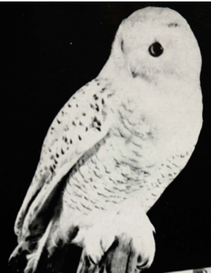
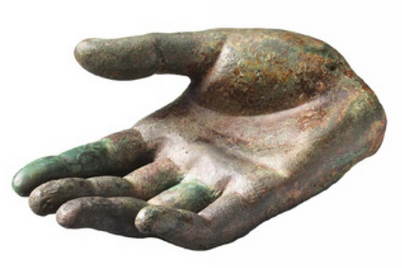
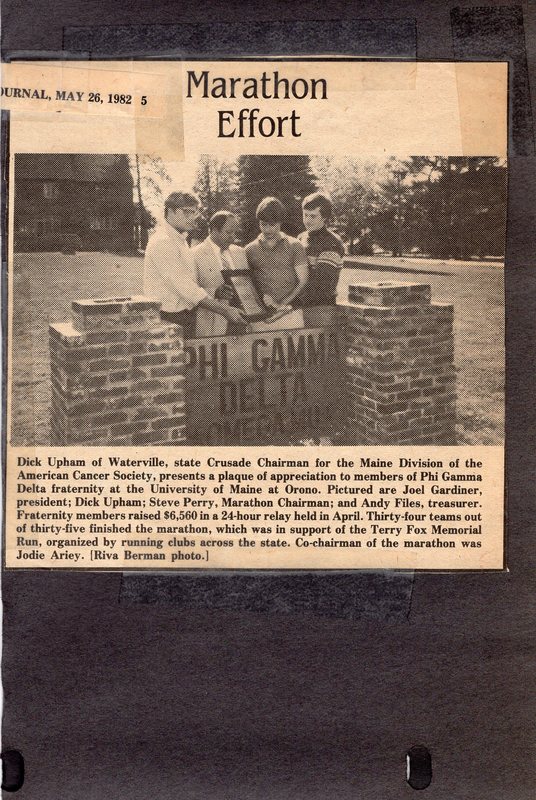
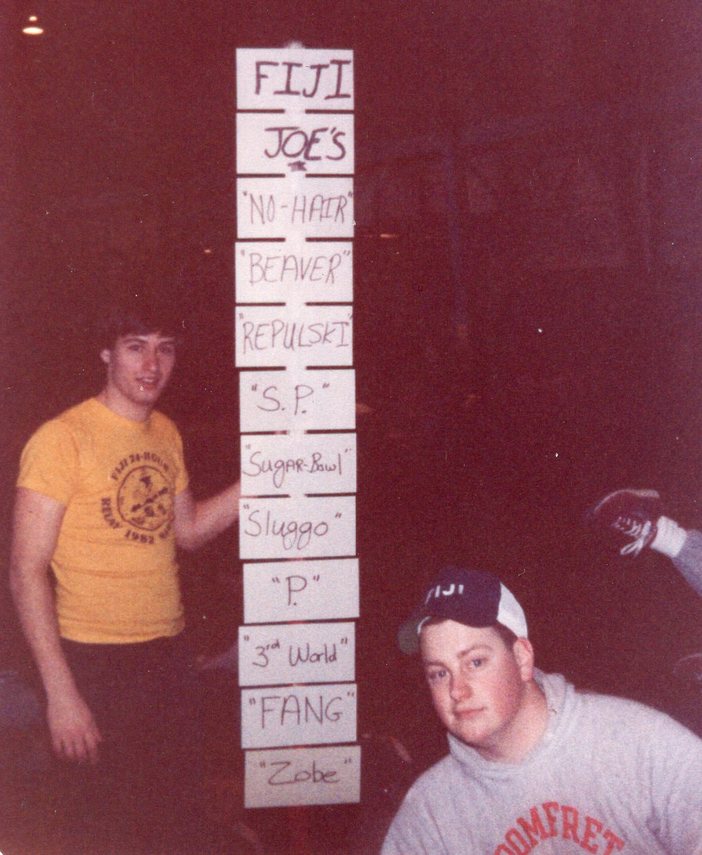
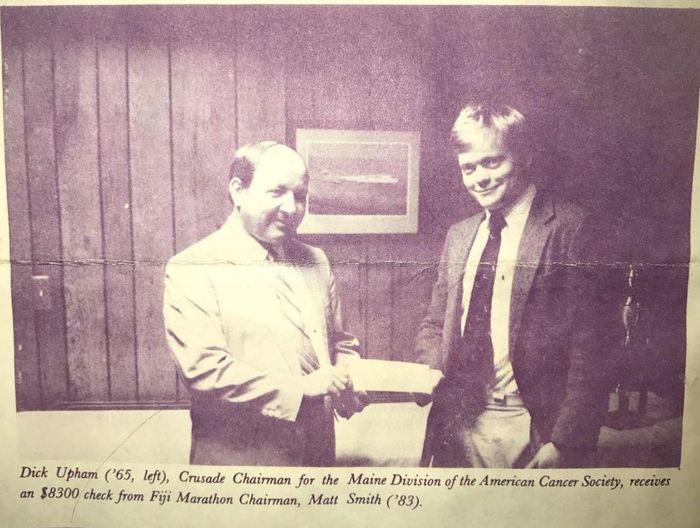
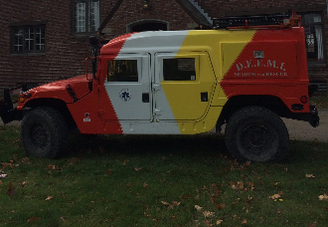
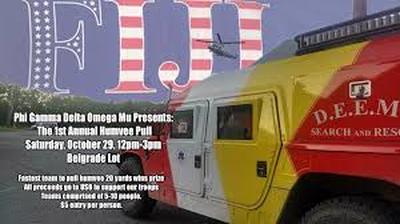
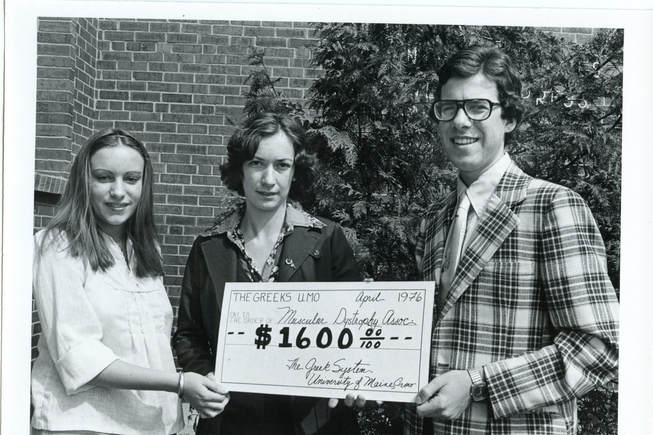
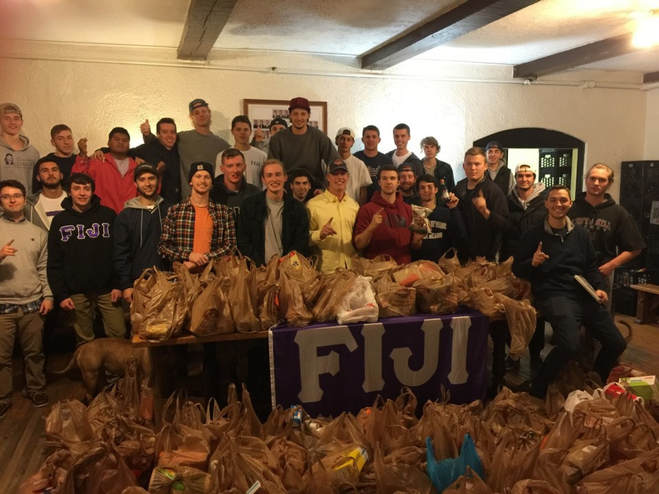
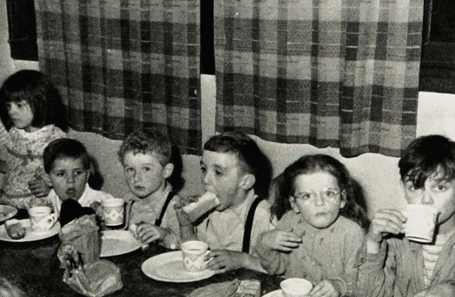
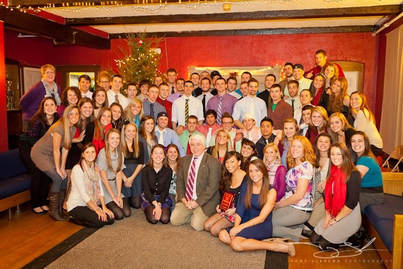
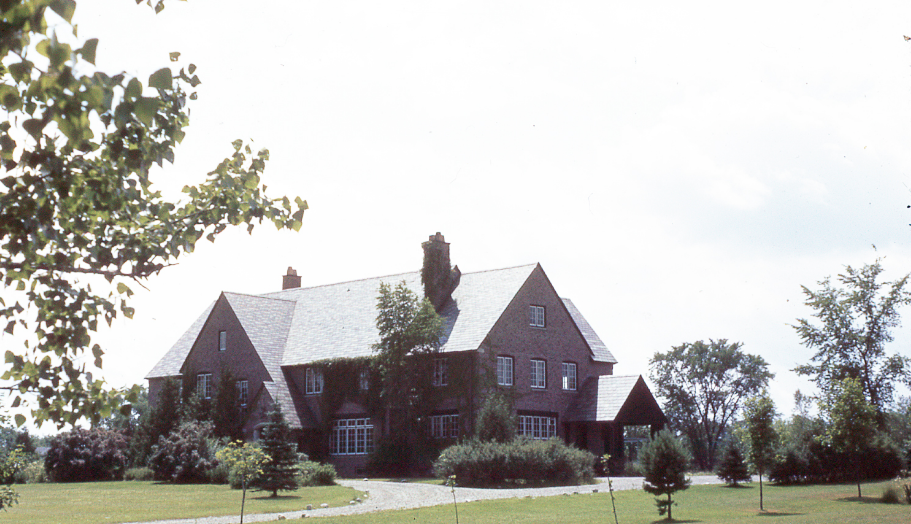
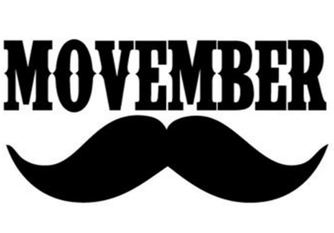
 RSS Feed
RSS Feed